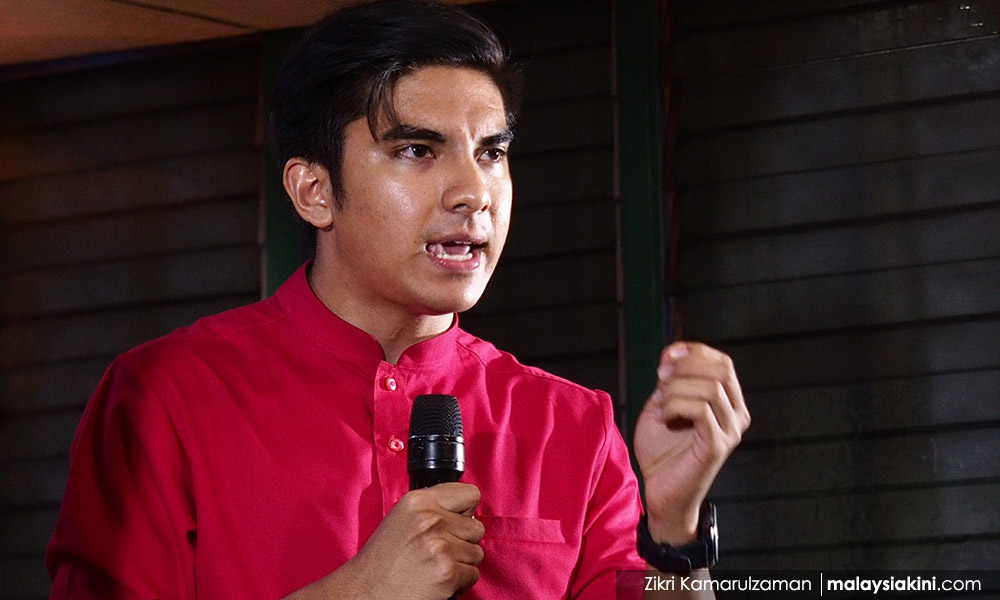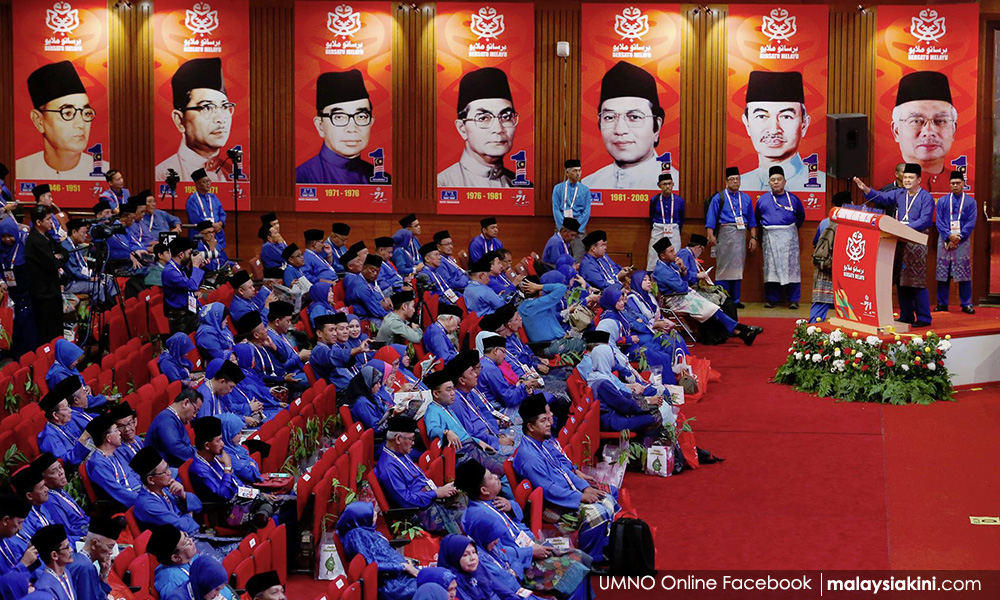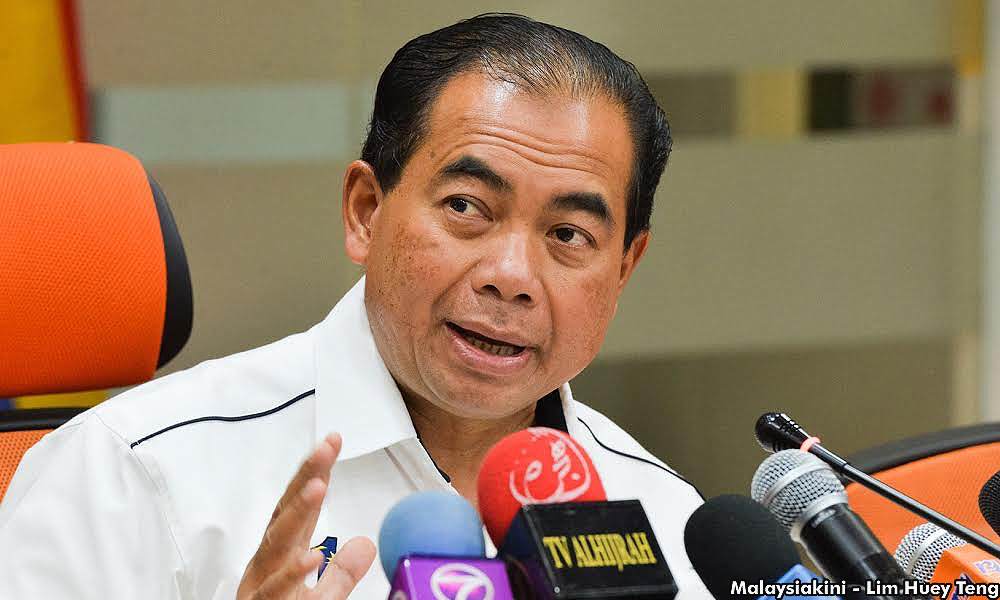COMMENT | Nothing prepares you for the world of politics.
In this voracious arena where everyone’s wants need to be prioritised, and where a mere 24 hours can change the landscape of one’s battlefield – no matter how high an IQ one has, or how street smart one is – nothing prepares you for the world of politics.
It is only through one’s vision and fortitude to swim in a sea full of bloodthirsty sharks, and one’s sincerity in seeing the people, can one learn to survive in the world of politics.
Politics thus becomes a teacher. Party elders, fellow party members, and the everyday people become your teachers.
Sometime in August 2016, I wrote a piece entitled “The Malay emancipation,” in which I touched on two of Bersatu’s aces in the deck, namely the young Malaysian politicians it is grooming; and the Malay political consciousness, which needs to be rehabilitated in order to overcome the insular cells they have become trapped in.
One and a half years on, we are witnessing the blossoming and maturing of the likes of my fellow Bersatu supreme council members Syed Saddiq Syed Abdul Rahman (photo) and Ulya Husamuddin into potential statespersons.

Had this been Umno, these two would have been buried under the weight of 30 leaders and be told to wait their turn and “work” their way up the ladder.
Instead, like myself, we were thrown into the deep end and were told to either sink or swim. No university degree, nor advice from our seniors and family members could have prepared us for the onslaught we continue to face both internally and externally.
Sink or swim
Considering that 54 percent of Bersatu’s members are made up of those below the age of 35 proves that the Malay youth can come together, so long as the leaders show that they have the will and the vision to lead.
The recent addition of Wan Saiful Wan Jan to the ranks is most welcome as Bersatu now has on board one of the nation’s leading intellectuals to aid in rehabilitating the Malay political consciousness.
However, my fear is that the Malay political consciousness has reached catatonia - despite many of the people’s struggles with the high cost of living, Malays have begun to accept this sorry state of affairs as the norm.
I once stressed that we need to reconcile “Maruah Melayu” (Malay pride) into the new narrative so that it transforms into “Budaya Bersatu” (Bersatu culture), an equivalent bushido for the new Malay political consciousness.
The hope is that when it reaches the grassroots, it will in turn be used to elevate themselves out of the catatonic state that they are in.
Feudal tendencies
Venturing into Sri Gading – a semi-urban seat in Batu Pahat, of which I am division chief – I have come to the conclusion that Umno, with all its rent seeking and extractive traits, thrives on the people’s struggles.
For years, their rhetoric has been to purportedly champion the people’s struggles while silently bleeding them dry, and they will continue to do so for many more years to come.

Yet, when I ask the people “how long will Umno supposedly champion the struggle of the people if the people are still struggling with no end in sight?” I am met with mostly blank stares. I do pray that I have helped them think.
To an outsider, an outstanding perceived trait of the Malay is that they are seen as lazy, resistant to change. This is especially so given their insular and feudal tendencies.
Politics has made them even more so, to the point that they become apathetic towards anything unfamiliar and distant.
Anyone unlucky enough to not have been born within a minimum radius of a kampung is labelled an outsider and held at arm’s length – a position I had been unfortunate enough to find myself in with regards to Sri Gading.
My more westernised upbringing and sense of culture clashes with the political insularity mindset of the Malays. Yet neither is wrong, as the clash of civilisations plays out especially among Malays ourselves.
Sri Gading is the epitome of a conundrum. It is urban yet rural. Developed yet developing. Mystifying yet enlightening. It is what Malaysia is today – a conundrum where efforts to reconcile our differing traits and values need to be channelled towards a clear and realistic yet shared vision.
'The System'
To the layperson, especially the Malays in Sri Gading, Umno is not an organisation that can be separated from Malay society, disciplined, or even quite defined.
It is an amorphous grouping of different tribes of Malays and its hinterlands of more than 200 autonomous divisions, and perhaps 3,000,000 immediate members, along with a much larger population of dependents, clients, and friends.
It is an understanding, a way of justice, a means of creating wealth and spreading it around.
It has been a part of life in Malaysia for the better half of a century. At its strongest, it has grown in recent years into a complete parallel world and, in many people’s minds, into a father figure.
Malays refer to it as “The System” with resignation and pride. Umno offers them work, lends them money, protects them from “outsiders with a hidden agenda to suppress and control the Malay mind.”
The chokehold that Umno has on the ordinary folk of Sri Gading is strong. A seat once held by the late former prime minister Hussein Onn and Johor Legislative Assembly speaker Mohamad Aziz is a very difficult seat to wrest.
The incumbent, Abdul Aziz Kaprawi (photo), may be scoffed at as a village idiot by the educated elite, but he is very much a popular local boy. A Javanese by heritage, his roots in the constituency remain embedded, considering that the majority of Sri Gading’s Malays are of Javanese extraction.

Daunting though it may be, there is hope in Sri Gading, and there is hope in emancipating the Malays there.
A conundrum is but a mere opportunity to focus our efforts of reconciling our differing values. For example, the idea of “ketuanan Melayu” may appeal to many, for who would not want to be a master?
The problem is, the master sits at the back of the car, while it is the chauffeur who drives. It should thus be reinforced to the Malays that they are indeed the main drivers of the economy, but if they want to be the master of economy and the country’s future, they need to be individually and mentally strong.
The Malays, given proper guidance, can be liberated from their insularity and siege mentality if Bersatu continues to drum into them “Maruah Melayu.”
They need to be reminded that our dignity is not only based on our communal background, but on values ingrained into us since young – such as being civilised, to consult before taking action, to be diplomatic, to be mindful and graceful, and to put the good of the many over those of the self.
“Maruah Melayu” as the backbone for Malay society to realign our moral compass can only be done via a moral leadership and dedication.
It is not too late to rewrite our vision and reconsolidate. If a rank outsider such as I, who has studied abroad for most of his young adult life can do it, then there is still hope in Malaysia after all.
TARIQ ISMAIL MUSTAFA is a supreme council member of Bersatu.
The views expressed here are those of the author/contributor and do not necessarily represent the views of Malaysiakini.

